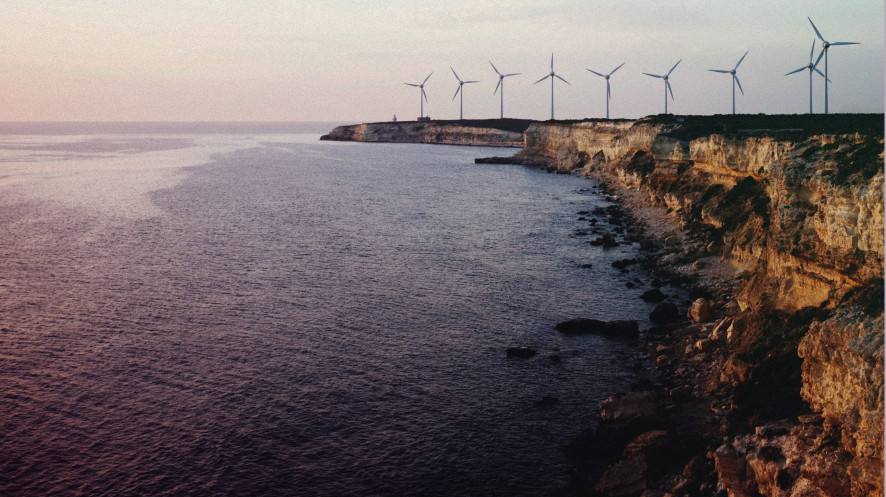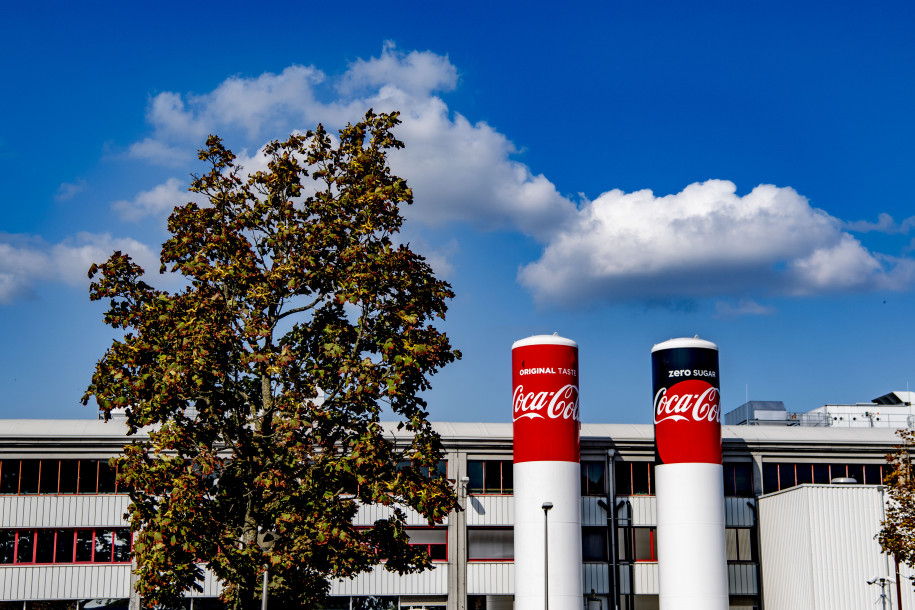News
The journey to net zero: redesigning supply chain relationships

09/12/2020
Ralf Peters, Head of Procurement
News

09/12/2020
Ralf Peters, Head of Procurement
In 2018, the Intergovernmental Panel on Climate Change (IPCC) published a Special Report which provided a wakeup call to nations across the globe. Calling for dramatic and urgent action, the report warned there remained at most a dozen years in which global temperatures could be kept to a maximum of 1.5C of warming.
We have a decade left to turn this around. Major change across every area of the economy needs to take place. Businesses – supported by governmental legislation – need to step up and play their part – not only for the future wellbeing of the planet but for a long list of negative environmental impacts that, if left unaddressed, will challenge the viability of their own operations.
It is vital that businesses such as Coca-Cola European Partners (CCEP) lead the way. We have made good progress to date, reducing greenhouse gas (GHG) emissions across our entire value chain (scopes 1, 2 and 3) by 31% in the last decade. However, much more needs to be done.
Launched this week, CCEP’s Net Zero 2040 ambition outlines a bold emissions reduction target, aligned with a 1.5C pathway and approved by the Science Based Targets Initiative (SBTi). This will see us reduce absolute GHG emissions across our entire value chain by a further 30% over the next decade.

The target we have set ourselves will be challenging. In order to hit it, key areas of the business will need to undergo fundamental changes. Significantly, with over 90% of our emissions attributed to our supply chain, these changes will not be confined to the four walls of CCEP, but to the commitments and actions of our 15,000 suppliers.
In short, our net zero ambition isn’t just about responding to the science. It is about fundamentally changing the way our business and our future supplier relationships operate.
Underpinning our Net Zero commitment is an objective to reduce GHG emissions across our entire value chain by 30% by 2030. Recognising the urgent need for action, this reduction pathway starts with a three year plan, focusing on the most immediate and impactful carbon reduction actions.
Every one of our suppliers across the five key pillars of our own business and supply chain (packaging, ingredients, operations, transport and refrigeration) will play a vital role in helping us reach our net zero ambition.
We are asking all of our suppliers to join us on this path to Net Zero. To reach our goal we’ve outlined three key actions that we need them to sign up to by 2023:.
There are advantages to these asks. Aside from the positive environmental impacts, by signing up to the SBTi our suppliers set themselves a clearly defined emissions reduction pathway, in line with the Paris Agreement goals.
Meanwhile switching to 100% renewable energy is the single most impactful carbon reduction step that any company can make. Not only does it reduce carbon emissions, it helps support local and national net zero objectives too.
But it is perhaps the last point which sits at the heart of our new supplier relationship. Going forwards, carbon data-sharing will play a vital role, enabling us to work collaboratively and ensure GHG reduction targets are met.

Our suppliers have been moving through the GHG emissions reduction commitments with us for some years already.
In 2017, we launched our This is Forward sustainability strategy and we invited every one of our suppliers to join our emission reduction path, being clear that the actions of our supply chain network will play a critical role in driving down CCEP’s own carbon emissions.
Sustainability has sat alongside other essential supplier compliance framework requirements such as the modern slavery act and prevention of child labour for a long time.. However, from now on, the bar will be set higher. We will expect our suppliers to provide evidence of clear, long-term carbon reduction commitments – and evidence they are being met. Emissions reduction objectives are now as important a consideration for CCEP as the quality and price of a product or service our suppliers provide.
Our aim is to build net zero momentum. By creating carbon reduction pathways across our entire value chain we can reduce GHG emissions in areas where we have control (direct emissions) and areas where we don’t (indirect emissions).
We’ve been encouraged by the response. To date, one third of our suppliers have signed up to our three key asks, with many more signalling their intent to align themselves over the coming months. A survey from our recent supplier day showed that 83% of respondents were already measuring their carbon footprint, while a third of respondents are aligned or are planning to align with the SBTi in the next two years.
Of course, we recognise not everyone is in a position to join us immediately. On this basis, our 2040 Net Zero ambition is underpinned by a commitment to work collaboratively with our suppliers, helping them develop carbon reduction practices wherever possible.
Measuring and mitigating climate risk is fast becoming a requirement for all businesses, no matter their clients or suppliers. Investors are factoring long-term sustainability targets into their decision-making. Companies are being asked to disclose their climate-related risk and carbon reduction strategies via standardised frameworks. Those who don’t disclose this information simply face losing their competitive advantage.

Our net zero 2040 ambition signals a fundamental belief in the power of collaborative action between CCEP and its suppliers. As we progress through the next three-years, we will apply the lessons we’ve learnt – from innovation to carbon data sharing - with all our suppliers to influence the route we take to net zero. We will continue adapting and learning from others as we work to reach our zero ambition.
Net zero is a target CCEP is serious about hitting. It isn’t a ‘nice to have’. It’s a core ambition for our business. Bringing our suppliers on board is fundamental to our getting there. By 2023, it is my hope that we will have significantly transformed our supply chain. This is the start of new phase of business for CCEP and our suppliers; one in which the prospect of a shared, low-carbon future is made possible.